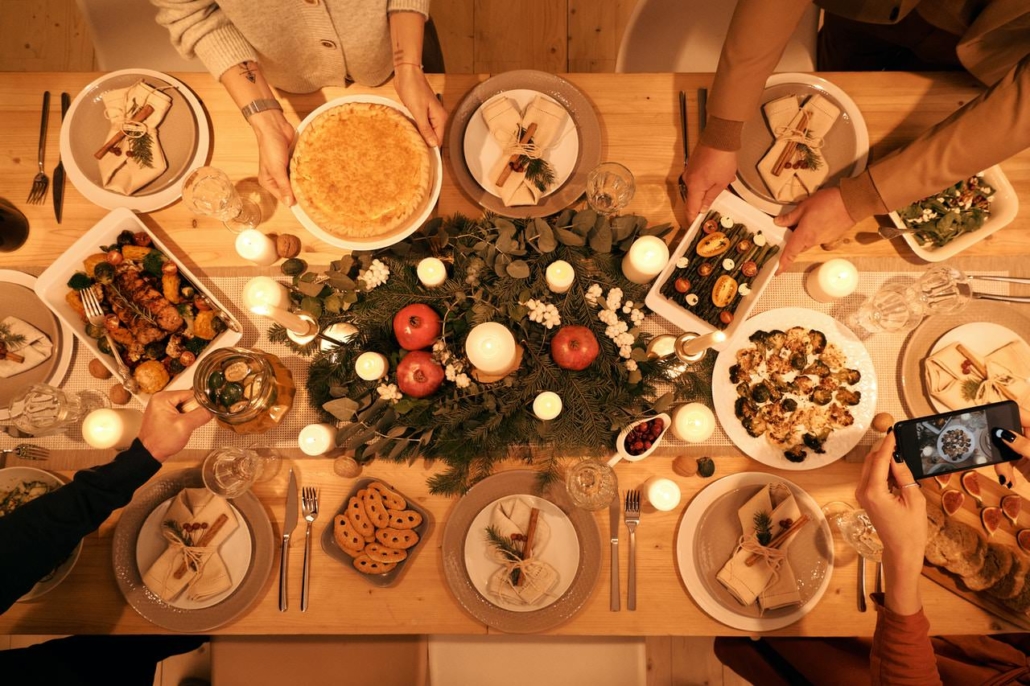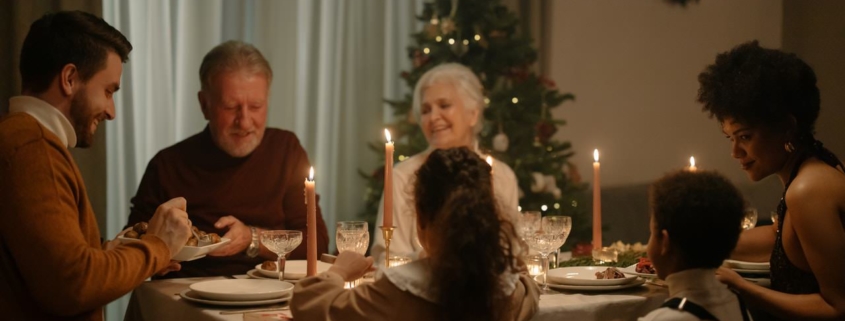Christmas day is, for many people, the most joyful day of the winter holidays. Decorating the house, spending time with our loved ones and enjoying a Christmas dinner is something most of us are looking forward too. At the same time, it can be a very challenging day for people with dementia as unfamiliar settings and situations can be confusing for them. Even if they spend the day at their home, the abundance of decorations, the large number of people visiting and the noisy atmosphere of a Christmas party will not only upset their usual schedule but also present them with an environment that is essentially unfamiliar to them. Thus, we must ensure that people with dementia are included in Christmas day celebrations in ways that are meaningful and non-threatening to them.
Decorating the house marks the beginning of the festive season, helps the family get together and brings back good memories. Many decorations have their own story and remind us of past Christmases. It is also a way to care for our guests as we have the opportunity to make the house festive and beautiful for them and showcase the decorations they might have gifted us in the past. It is important to involve our loved ones with dementia in Christmas decorating. It will make them feel included in our festive activities and make the changes in the environment more incremental and manageable. Make sure that you remind them the reason for decorating and discuss the history of some of the family’s most treasured Christmas ornaments. Also take note of anything that may causing too much anxiety or agitation. If twinkling or flickering lights are unbearable for them switch to regular lights.

If you are inviting people over for a Christmas party, talk to the person with dementia and remind them who each visitor is. Showing them photographs of each guest can help too. Also let your visitors know about your loved one’s dementia and how it can affect their interaction with them. Make sure that the person with dementia is sitting in a spot where they can see visitors entering the room so they don’t suddenly get overwhelmed by the presence of people they were not expecting. Ask your guests to keep the noise down as much as possible to avoid auditory overstimulation. It is also a good idea to have a quiet room where the person with dementia can retreat if they feel overwhelmed.
The Christmas dinner is usually the highlight of Christmas day and it should be something our loved ones with dementia can participate in and enjoy. As people with dementia can have difficulties eating, don’t overwhelm them with an overloaded plate. Ensure that they are served their favorite foods in small and manageable quantities and consider creating finger food versions of their preferred foods if they have trouble using cutlery. Also, ensure that there is enough contrast between the tablecloth, plates, glasses and cutlery. Be mindful of alcohol consumption as your loved ones may have trouble remembering how much they have drunk during the dinner.
What is more important though, is remembering that each person and each family celebrates Christmas in their own way. And the way we celebrate can change as our lives change. If your lives have been changed by dementia it is important to find ways to celebrate Christmas in ways that work for you and your loved ones. Remember and treasure past Christmases and family traditions but make space in your hearts and in your minds for change and for the Christmases to come and make sure you stay together as a family throughout your loved one’s dementia journey.



